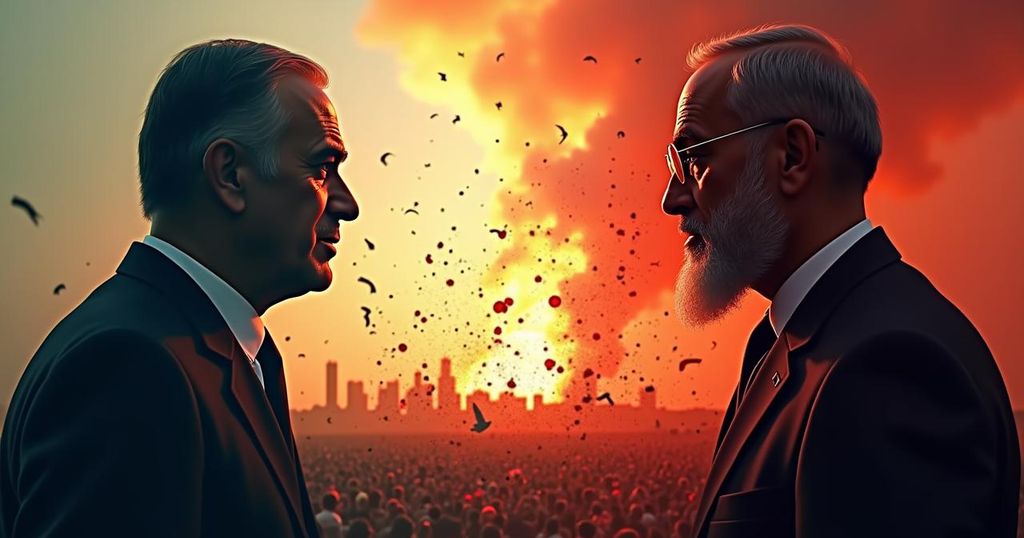Escalating Israel-Iran Tensions Challenge Harris Amid Election Campaign
The rising tensions in the Israel-Iran conflict are placing political pressure on Vice President Kamala Harris and the Biden administration as they approach the upcoming election. With concerns that the situation may reinforce Donald Trump’s narrative of chaos resulting from weak leadership, both Harris and her running mate are striving to present a stance of decisive action. The recent vice-presidential debate was overshadowed by escalating hostilities, complicating their campaign as they seek to balance domestic political dynamics with international realities.
The recent escalation in hostilities between Israel and Iran has placed Vice President Kamala Harris in a challenging position, compelling her to address the situation amidst critical political pressures. As missiles rain down over Tel Aviv, President Biden and Ms. Harris face mounting difficulties, particularly in light of the upcoming election. Six months prior, they hoped for a de-escalation of the conflict, driven by the desire to balance demands for justice on behalf of Gaza with the imperative to maintain support for Israel. However, Prime Minister Benjamin Netanyahu’s unilateral military strategy complicates their electoral landscape, raising fears that the ongoing violence could validate former President Donald Trump’s narrative of global disorder stemming from the current administration’s perceived weak leadership. In the context of the vice-presidential debate, the focus shifted dramatically from campaign themes to urgent international conflict, as images of Iranian missiles confronting Israeli defenses dominated discussions. Netanyahu has vowed retaliation against Iran, labeling their actions as a significant mistake; meanwhile, Ms. Harris has condemned Iran, emphasizing its role as a disruptive force in the Middle East while attempting to frame the administration’s response as indicative of decisive leadership. Her campaign partner, Governor Tim Walz, reiterated the notion that effective governance is crucial in managing such crises, contrasting it starkly with Trump’s recent debate focus on trivial matters such as crowd sizes, which he characterizes as inappropriate in the current geopolitical climate.
The Israel-Iran conflict represents a longstanding geopolitical struggle that has significant implications for regional stability and international relations, particularly in the context of U.S. foreign policy. The recent outbreak of violence has heightened tensions not only between these two nations but also among their allies and adversaries, creating an urgent political landscape that U.S. leaders must navigate. As elections approach, the Biden-Harris administration is faced with the challenge of reconciling its foreign policy objectives with domestic political pressures, all while addressing complex issues of national security and international perception.
In conclusion, the intensifying Israel-Iran conflict poses significant ramifications for Vice President Kamala Harris and the Biden administration as they navigate a precarious electoral landscape. With six weeks remaining until the election, the administration must address increasing scrutiny regarding its foreign policy while reinforcing its position against adversaries. The continued focus on leadership and steady governance will be pivotal themes as both political candidates seek to resonate with voters. The outcome of this conflict may ultimately influence public perception of each candidate’s effectiveness and capability to manage international crises.
Original Source: www.nytimes.com




Post Comment